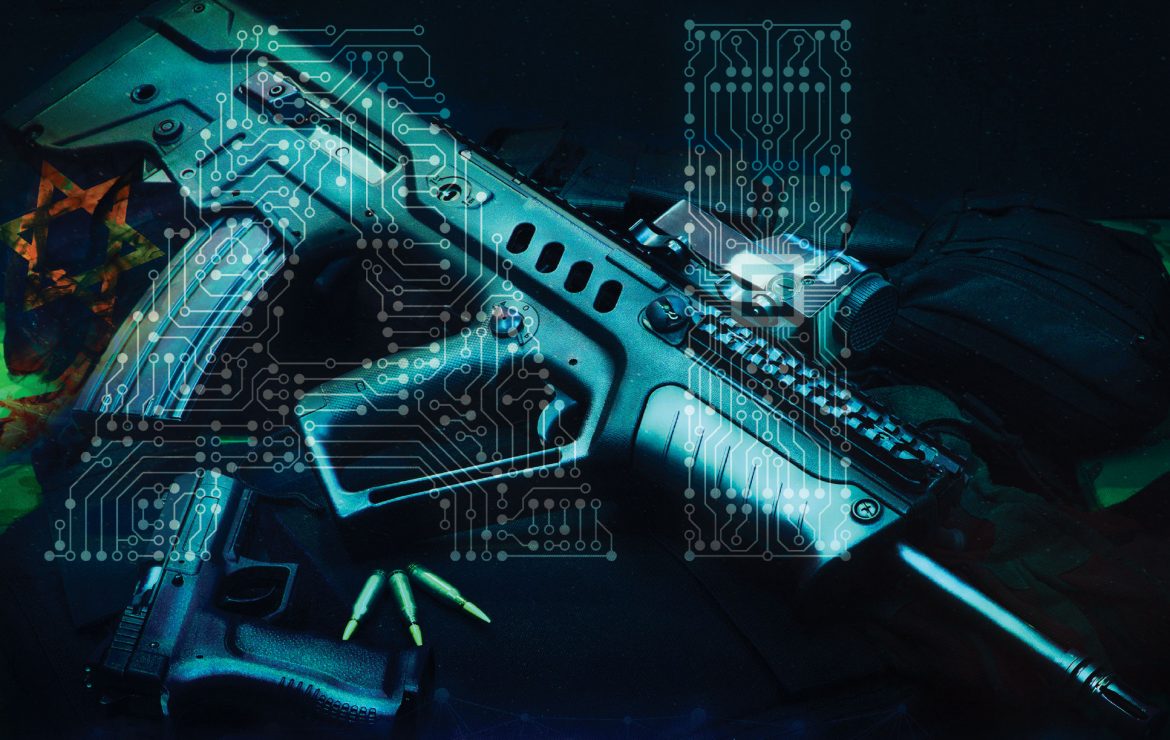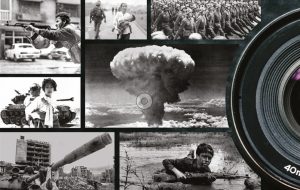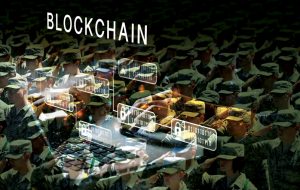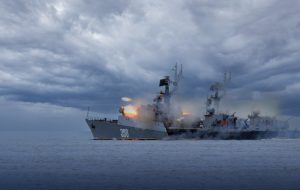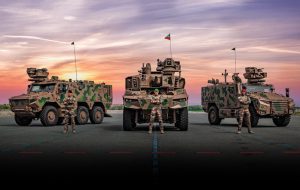For Israel, artificial intelligence is a technological field of great importance in terms of security, as it has become one of the most prominent areas in which it enjoys a significant foothold and leadership, thanks to the start-ups that are growing in the country, as well as the establishment of centers for the development of international companies in Israel. In recent years, the topic of artificial intelligence has also begun to gain a large share in the field of security solutions, as these applications are integrated into many security technologies to enhance their capabilities(1).
This made Israel possess a number of unique characteristics that affect these aspects, especially in the Israeli army. The following study presents the axes of artificial intelligence applications in the combat strategy of the Israeli army, as follows:
Artificial intelligence and its security applications:
AI technologies in the security field enable a variety of applications, including in the field of intelligence, for example: systems capable of scanning vast amounts of data and identifying targets, as well as logistical applications that allow optimization and resource saving, and autonomous driving, which they also have capabilities in the security realm, such as those in the civilian sphere and even beyond, as well as autonomous weapon systems that in turn allow for improved accuracy and reduced risk for the combatants who use them, as well as systems for planning and support for decision-making and simulation. This in turn made it possible to improve and shorten the planning and decision-making processes in the stages before performing tasks, based on huge amounts of data that could not be analyzed before. In addition to other uses, including those related to command and control systems that allow dealing with big data from different sources.
In addition to uses in cyber warfare and cyber defense, two of the leading areas in the use of artificial intelligence, for the purposes of attack and defense, as well as in dealing with amounts of data and rates that exceed human capabilities, in order to enable prediction and response as well as disaster management, including the ability to use huge databases or various sensors in order to perform the aggregation of information, resulting in insights that cannot be accessed by other means.
In addition, there are techniques supported by artificial intelligence and various applications in the field of human-machine interaction, which aim to shorten the time between receiving information by a human and assisting in decision-making and transferring it back to the device. These capabilities and applications reinforce the close link between AI technology and national security in general, and national security in Israel in particular. This, in turn, is in line with Israel’s concept of national security in its broad aspects, even those that go beyond military concepts, and in accordance with the army’s strategy.
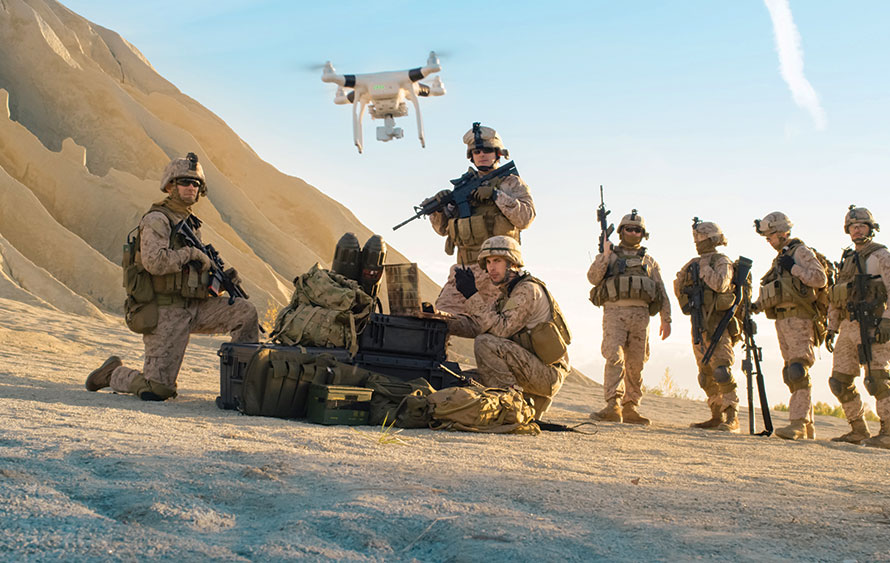
Employment of artificial intelligence in the Israeli army:
The idea that war is based on technology and that it will replace physical strength and human presence on the ground initially aroused a source of alarm and even opposition among the Israeli army, but many experts in the field of artificial intelligence have confirmed in their estimates, with the start of employing technologies that the integration of artificial intelligence in the combat strategy of the Israeli army, not with the aim of replacing soldiers in the field, but by understanding their potential in fighting efficiency and thus achieving more effectiveness and efficiency on the battlefield.
To develop and absorb artificial intelligence techniques, it required them in the Israeli army, unique and trained manpower, including information engineers to transmit complex information to them, as well as analysts to retrieve data from databases and present it to consumers in an accessible and understandable manner. Indeed, the Israeli army has taken practical steps today to develop the manpower of these professions through the paths of excellence for distinguished soldiers and reserve officers in the field. However, in light of the lack of manpower specialized in these fields, it may naturally result in demand and supply operations that will directly affect the brain drain from the Israeli army, especially in the first ranks (2).
By analyzing the four basic elements of the Israeli security concept, which are (deterrence, warning, decisiveness, and defense), it turns out that artificial intelligence has the ability to positively influence the ability to achieve and maintain each of these elements, by integrating them into different military systems or producing innovation.
Artificial intelligence has also contributed significantly to achieving a large part of the goals presented in the IDF Strategy (2018) by former Chief of Staff Gadi Eisenkot. That strategy enumerated four basic types of efforts related to any military operation: (offense, defense, assistance, and empowerment) in order to enhance each of these efforts due to the importance of technological superiority and artificial intelligence, which is a major area that contributes to maintaining superiority.
For example, AI is already used in air defense systems, and it has a significant impact on the defense effort. As well as the widespread use of artificial intelligence in the areas of intelligence and information technology, which helps to improve capabilities related to the aspect of warning.
Artificial intelligence has also contributed greatly to assisting the Israeli army in the field of learning and operational planning contained in the army’s strategy, including planning and simulation systems, or through the use of technologies. It enables conclusions that could not be reached in the past through human effort, due to the difficulty of dealing with and analyzing large amounts of data.
In addition, Israel has a comparative advantage in technological fields, including unmanned and cyber tools which are evident security areas.
Combining them with artificial intelligence as a force multiplier greatly helps Israel in maintaining and expanding national security, whether through military means or through other economic and international influences (3).
Therefore, artificial intelligence is seen in the Israeli army as a key element among the technologies in the civilian market that have been adapted to the army’s world, because of the assistance it provides in the dangerous roles that are currently performed only by humans. Therefore, combining robots and machines in important tasks related to security is not a simple matter, and therefore it is difficult to leave security matters in the hands of the machine, so the process is controlled well and gradually until the Israeli army has become able to develop more, thanks to the use of this advanced technology in the combat fields (4) .
The effectiveness of artificial intelligence in war:
Turning to measuring the effectiveness of artificial intelligence in the fields of war, we have here taken the “Fences Guard” operation in the Gaza Strip as a model, as media reports came a week after the end of the operation, quoting the Intelligence Division of the Israeli army, dealing with the army’s performance and the effectiveness of its combat strategy against the two Hamas movements and the Islamic Jihad in Gaza during the aforementioned military operation, thanks to artificial intelligence, where they confirmed that for the first time, artificial intelligence is a major component and a force multiplier in the fight against these movements. According to a senior source in the Military Intelligence Division “Aman”, this is the first battle of its kind for the Israeli army, in which it embodies new and technologically advanced methods of action that multiply the strength of the entire Israeli army. The integration of large and diverse intelligence with artificial intelligence and deep communication in the field represented a dramatic transformation in strengthening the intelligence link with the operational side.
The IDF reportedly said that in contrast to all the military battles that preceded it, Operation Fences was characterized by an unprecedented use of artificial intelligence capabilities, where the Israeli forces performed an impressive trinity among a long list of capabilities, including specialized applications that had been developed to make real-time intelligence accessible to all forces in the field, digital attack cells, drones, warning systems, and other intelligence capabilities.
The operation was based on the creation of the IDF’s “Information and Knowledge Foundation”, an advanced artificial intelligence technology platform that aims to centralize all the IDF’s information about the enemy in a single platform, in order to enable analysis and extraction of information in real time.
The platform contains about 90% of all the information in the possession of the Israeli army, and enables broad capabilities in the areas of defense, targets and maneuvers in the combat field, which were not in the possession of the Israeli army until recently. Under the leadership of Unit 8200, three main systems were developed for the success of the program, including the “Alchemist” and “Depth of Wisdom”, which were used during the fighting.. As for the third system, which was developed through the men of Unit 8200, it is a system that generates recommendations for targets through artificial intelligence for targeted researchers in the Research Department of the Military Intelligence Division (Aman) in military commands and divisions.
The researcher agrees with the recommendations of the system and works according to them in order to continue and produce other qualitative goals for the fighting forces (5).
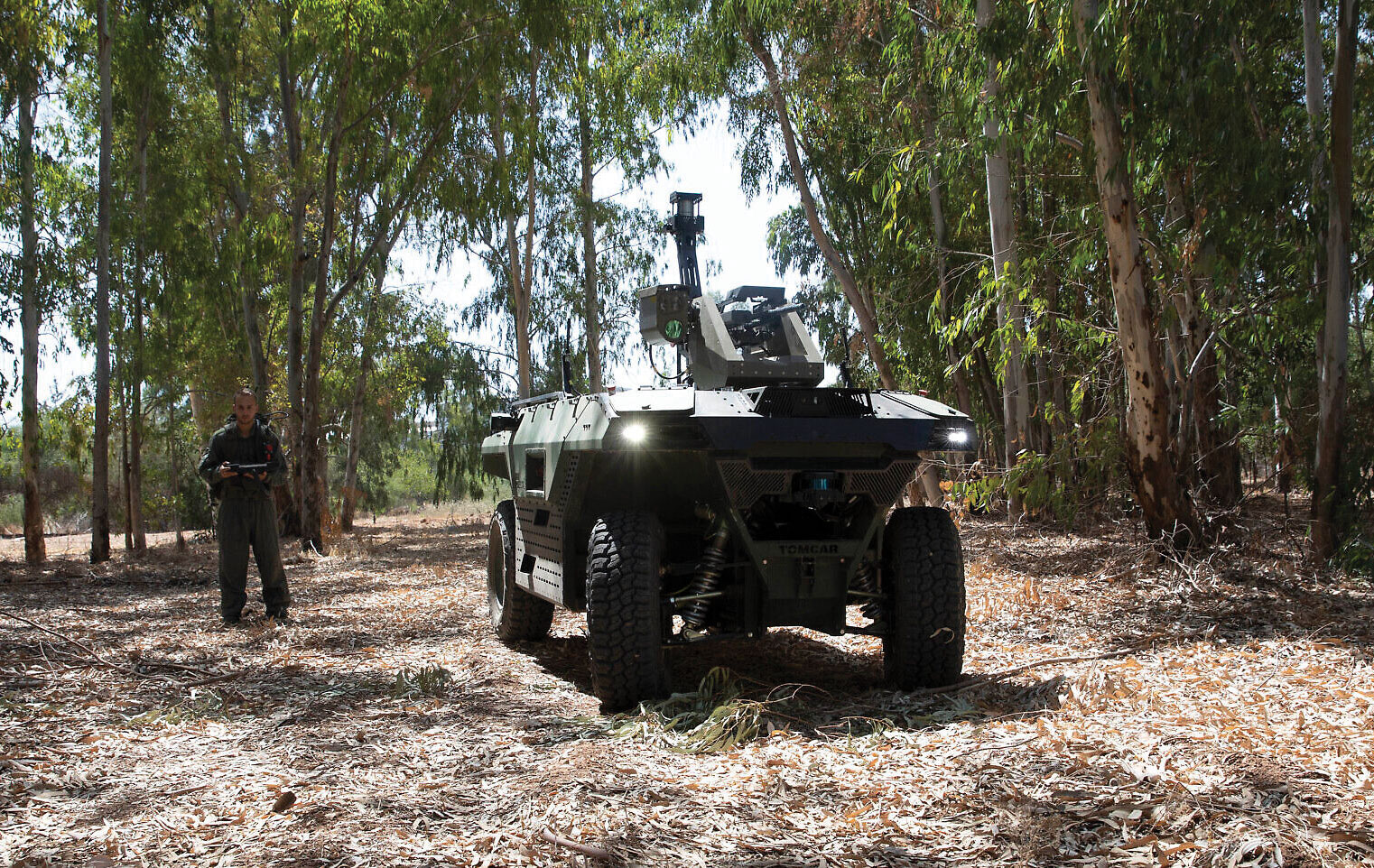
Challenges in the field of artificial intelligence:
In light of the challenges arising from international competition, and despite the many advantages and opportunities that have proven to be effective in the combat strategy of the Israeli army, artificial intelligence technology poses a variety of challenges for Israel, which require decision-makers to deal with in this field. Including:
1 Technical challenges: They include challenges in development, as there are still some difficulties in adapting civilian technology to military use, including the lack of raw data (data), as well as the difficulty of explaining the results of operating an artificial intelligence system because it is a “black box”.
2 Organizational challenges: These include the need for allocated budgets, investment and management of human resources, and dealing with Israel as a small country with limited resources.
3 Challenges in use: include difficulties in adapting the pace of the environment or the people using these systems to their high capabilities, the difficulty of systems in adapting to new environments in which they have not been trained, challenges in the field of security and reliability of systems, ethical challenges are the biases generated by information, as well as using these systems to produce “false information” that appears reliable.
4 Security and political challenges: including the international arms race, the difficulty of agreeing with weapon -control systems in the field and their applications, as well as their vulnerability to cyber attacks or other manipulations (6).
In the midst of the Israeli decision-maker’s dealing with these challenges, we would like to point out that the annual government investment in the field amounts to 1-2 billion shekels of the total investment in Israel, while to make it an artificial intelligence power and one of the five leading countries in the world, it is required to invest 10 billion shekels in this area (7).
conclusion
In conclusion, it can be said that despite the advantages and the evidence of artificial intelligence effectiveness in the combat strategy of the Israeli army and the enhancement of its capabilities, we will automatically conclude, if we look further and more into the past, that it was easier in general to evaluate the expected developments in various fields of technology and their impact on the army, especially in the future battlefield. However, the rapid pace of technological developments today makes it very difficult to predict the future over the next decade, as important developments are mainly in the field of software and everything related to it such as microelectronics and computers and data science, artificial intelligence and the ability to gain insights based on big data, “cloud” technologies for data storage, cyber, and communications as well as advances in military hardware such as weapon systems and combat support equipment that are increasingly evolving.
In any case, it seems that technological development has begun to increasingly reduce the human role in future wars which raises several questions: What are the roles of the person behind the systems – intelligence, leadership and decision-making? Moreover, are predictions about the distant future doomed to fail? In light of this, we conclude that future developments, to one degree or another, would stem from assessing the actual situation in the battlefield, which is still present on the planning schedules by updating the combat strategy according to the requirements of need and technological development, which in turn contributes to enhancing capabilities and raising the efficiency of armies and increases both qualitative and technological superiority (8).
Dr. Rania Fawzy
researcher in Israeli affairs


